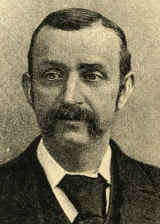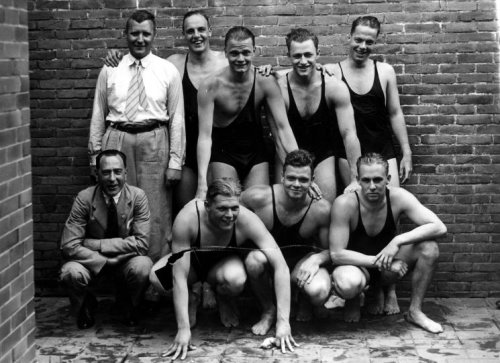|
Mirko Tarana
Mirko Tarana (22 September 1913 – May 1945) was a Croatian water polo player. He competed in the men's tournament at the 1936 Summer Olympics The 1936 Summer Olympics (German: ''Olympische Sommerspiele 1936''), officially known as the Games of the XI Olympiad (German: ''Spiele der XI. Olympiade'') and commonly known as Berlin 1936 or the Nazi Olympics, were an international multi-sp .... References 1913 births 1945 deaths Croatian male water polo players Olympic water polo players for Yugoslavia Water polo players at the 1936 Summer Olympics Water polo players from Dubrovnik {{Croatia-waterpolo-bio-stub ... [...More Info...] [...Related Items...] OR: [Wikipedia] [Google] [Baidu] |
Water Polo
Water polo is a competitive team sport played in water between two teams of seven players each. The game consists of four quarters in which the teams attempt to score goals by throwing the ball into the opposing team's goal. The team with the most goals at the end of the game wins the match. Each team is made up of six field players and one goalkeeper. Excluding the goalkeeper, players participate in both offensive and defensive roles. It is typically played in an all-deep pool where players cannot touch the bottom. A game consists mainly of the players swimming to move about the pool, treading water (mainly using the eggbeater kick), passing the ball, and shooting at the goal. Teamwork, tactical thinking and awareness are also highly important aspects. Water polo is a highly physical and demanding sport and has frequently been cited as one of the most difficult to play. Special equipment for water polo includes a water polo ball, a ball of varying colors which floats on the ... [...More Info...] [...Related Items...] OR: [Wikipedia] [Google] [Baidu] |
Dubrovnik
Dubrovnik (), historically known as Ragusa (; see notes on naming), is a city on the Adriatic Sea in the region of Dalmatia, in the southeastern semi-exclave of Croatia. It is one of the most prominent tourist destinations in the Mediterranean, a seaport and the centre of the Dubrovnik-Neretva County. Its total population is 42,615 (2011 census). In 1979, the city of Dubrovnik was added to the UNESCO list of World Heritage Sites in recognition of its outstanding medieval architecture and fortified old town. The history of the city probably dates back to the 7th century, when the town known as was founded by refugees from Epidaurum (). It was under the protection of the Byzantine Empire and later under the sovereignty of the Republic of Venice. Between the 14th and 19th centuries, Dubrovnik ruled itself as a free state. The prosperity of the city was historically based on maritime trade; as the capital of the maritime Republic of Ragusa, it achieved a high level of develo ... [...More Info...] [...Related Items...] OR: [Wikipedia] [Google] [Baidu] |
Bleiburg
Bleiburg ( sl, Pliberk) is a small town in the south Austrian state of Carinthia (''Koroška''), south-east of Klagenfurt, in the district of Völkermarkt, some four kilometres (2.5 miles) from the border with Slovenia. The municipality consists of the twelve ''Katastralgemeinden'' Aich (''Dob''), Bleiburg, Grablach (''Grablje''), Kömmel (''Komelj''), Moos (''Blato''), Oberloibach (''Libuče''), Rinkenberg (''Vogrče''), Sankt Margarethen (''Šmarjeta''), Schattenberg (''Senčni kraj''), Unterloibach (''Libuče''), Weißenstein (''Belšak'') and Woroujach (''Borovje''). According to a 2001 census, 30.4% of the population are Carinthian Slovenes (in 1971, they were 52.8%). Geography The border town is located in the valley of the Feistritz creek, a right tributary of the Drava, north of the Peca massif of the Karavanke mountain range. It is home to a district court, military barracks and to the local productive and services industry. The name of Bleiburg, literally meaning 'Le ... [...More Info...] [...Related Items...] OR: [Wikipedia] [Google] [Baidu] |
Water Polo
Water polo is a competitive team sport played in water between two teams of seven players each. The game consists of four quarters in which the teams attempt to score goals by throwing the ball into the opposing team's goal. The team with the most goals at the end of the game wins the match. Each team is made up of six field players and one goalkeeper. Excluding the goalkeeper, players participate in both offensive and defensive roles. It is typically played in an all-deep pool where players cannot touch the bottom. A game consists mainly of the players swimming to move about the pool, treading water (mainly using the eggbeater kick), passing the ball, and shooting at the goal. Teamwork, tactical thinking and awareness are also highly important aspects. Water polo is a highly physical and demanding sport and has frequently been cited as one of the most difficult to play. Special equipment for water polo includes a water polo ball, a ball of varying colors which floats on the ... [...More Info...] [...Related Items...] OR: [Wikipedia] [Google] [Baidu] |
Water Polo At The 1936 Summer Olympics
Final results for the water polo tournament at the 1936 Summer Olympics: Medal summary Results Elimination rounds In the first round each team in a group played each other team in the same group. The placings were determined on points. If the points were equal, then the better goal average decided. The first two teams of each group were qualified for the semi-finals, while the third and fourth placed team was eliminated. Group 1 Group 2 Group 3 Group 4 Semi-finals As in the elimination round each team in a group played each other team in the same group unless they had met in the previous round. In this case the previous result stood and was carried forward to this group. So in each group only four matches had to be played. The placings were determined on points. If the points were equal, then the better goal average decided. The first two teams of each group were qualified for the final round, while the third and fourth placed team were eliminated and took part i ... [...More Info...] [...Related Items...] OR: [Wikipedia] [Google] [Baidu] |
1936 Summer Olympics
The 1936 Summer Olympics (German: ''Olympische Sommerspiele 1936''), officially known as the Games of the XI Olympiad (German: ''Spiele der XI. Olympiade'') and commonly known as Berlin 1936 or the Nazi Olympics, were an international multi-sport event held from 1 to 16 August 1936 in Berlin, Germany. Berlin won the bid to host the Games over Barcelona at the 29th IOC Session on 26 April 1931. The 1936 Games marked the second and most recent time the International Olympic Committee gathered to vote in a city that was bidding to host those Games. Later rule modifications forbade cities hosting the bid vote from being awarded the games. To outdo the 1932 Los Angeles Games, Reich Führer Adolf Hitler had a new 100,000-seat track and field stadium built, as well as six gymnasiums and other smaller arenas. The Games were the first to be televised, with radio broadcasts reaching 41 countries.Rader, Benjamin G. "American Sports: From the Age of Folk Games to the Age of Televised Spo ... [...More Info...] [...Related Items...] OR: [Wikipedia] [Google] [Baidu] |
1913 Births
Events January * January 5 – First Balkan War: Battle of Lemnos – Greek admiral Pavlos Kountouriotis forces the Turkish fleet to retreat to its base within the Dardanelles, from which it will not venture for the rest of the war. * January 13 – Edward Carson founds the (first) Ulster Volunteer Force, by unifying several existing loyalist militias to resist home rule for Ireland. * January 23 – 1913 Ottoman coup d'état: Ismail Enver comes to power. * January – Stalin (whose first article using this name is published this month) travels to Vienna to carry out research. Until he leaves on February 16 the city is home simultaneously to him, Hitler, Trotsky and Tito alongside Berg, Freud and Jung and Ludwig and Paul Wittgenstein. February * February 1 – New York City's Grand Central Terminal, having been rebuilt, reopens as the world's largest railroad station. * February 3 – The 16th Amendment to the United S ... [...More Info...] [...Related Items...] OR: [Wikipedia] [Google] [Baidu] |
1945 Deaths
1945 marked the end of World War II and the fall of Nazi Germany and the Empire of Japan. It is also the only year in which Nuclear weapon, nuclear weapons Atomic bombings of Hiroshima and Nagasaki, have been used in combat. Events Below, the events of World War II have the "WWII" prefix. January * January 1 – WWII: ** Nazi Germany, Germany begins Operation Bodenplatte, an attempt by the ''Luftwaffe'' to cripple Allies of World War II, Allied air forces in the Low Countries. ** Chenogne massacre: German prisoners are allegedly killed by American forces near the village of Chenogne, Belgium. * January 6 – WWII: A German offensive recaptures Esztergom, Kingdom of Hungary (1920–1946), Hungary from the Russians. * January 12 – WWII: The Soviet Union begins the Vistula–Oder Offensive in Eastern Europe, against the German Army (Wehrmacht), German Army. * January 13 – WWII: The Soviet Union begins the East Prussian Offensive, to eliminate German forces in East Pruss ... [...More Info...] [...Related Items...] OR: [Wikipedia] [Google] [Baidu] |
Croatian Male Water Polo Players
Croatian may refer to: * Croatia *Croatian language *Croatian people *Croatians (demonym) See also * * * Croatan (other) * Croatia (other) * Croatoan (other) * Hrvatski (other) * Hrvatsko (other) * Serbo-Croatian (other) Serbo-Croatian or Croato-Serbian, rarely Serbo-Croat or Croato-Serb, refers to a South Slavic language that is the primary language of Serbia, Croatia, Bosnia and Herzegovina, and Montenegro. Serbo-Croatian, Serbo-Croat, Croato-Serbian, Croato-Serb ... {{disambiguation Language and nationality disambiguation pages ... [...More Info...] [...Related Items...] OR: [Wikipedia] [Google] [Baidu] |
Olympic Water Polo Players For Yugoslavia
Olympic or Olympics may refer to Sports Competitions * Olympic Games, international multi-sport event held since 1896 ** Summer Olympic Games ** Winter Olympic Games * Ancient Olympic Games, ancient multi-sport event held in Olympia, Greece between 776 BC and 393 AD * Wenlock Olympian Games, a forerunner of the modern Olympic Games, held since 1850 * Olympic (greyhounds), a competition held annually at Brighton & Hove Greyhound Stadium Clubs and teams * Adelaide Olympic FC, a soccer club from Adelaide, South Australia * Fribourg Olympic, a professional basketball club based in Fribourg, Switzerland * Sydney Olympic FC, an Australian soccer club * Olympic Club (Barbacena), a Brazilian football club based in Barbacena, Minas Gerais state * Olympic Mvolyé, a Cameroonian football club based in Mvolyé * Olympic Club (Egypt), a football and sports club based in Alexandria * Blackburn Olympic F.C., an English football club based in Blackburn, Lancashire * Rushall Ol ... [...More Info...] [...Related Items...] OR: [Wikipedia] [Google] [Baidu] |
Water Polo Players At The 1936 Summer Olympics
Water (chemical formula ) is an inorganic, transparent, tasteless, odorless, and nearly colorless chemical substance, which is the main constituent of Earth's hydrosphere and the fluids of all known living organisms (in which it acts as a solvent). It is vital for all known forms of life, despite not providing food, energy or organic micronutrients. Its chemical formula, H2O, indicates that each of its molecules contains one oxygen and two hydrogen atoms, connected by covalent bonds. The hydrogen atoms are attached to the oxygen atom at an angle of 104.45°. "Water" is also the name of the liquid state of H2O at standard temperature and pressure. A number of natural states of water exist. It forms precipitation in the form of rain and aerosols in the form of fog. Clouds consist of suspended droplets of water and ice, its solid state. When finely divided, crystalline ice may precipitate in the form of snow. The gaseous state of water is steam or water vapor. Water covers ab ... [...More Info...] [...Related Items...] OR: [Wikipedia] [Google] [Baidu] |







